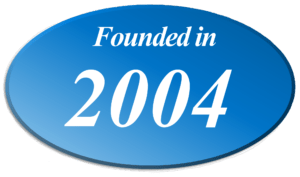How brave are you, and what are you willing to learn and act on in order to grow your fundraising? If you have courage you may be ready for a fundraising feasibility study.
 If your nonprofit is considering a major fundraising campaign in the next 12 to 36 months now is the time to prepare for your feasibility study and define what you want to learn from it.
If your nonprofit is considering a major fundraising campaign in the next 12 to 36 months now is the time to prepare for your feasibility study and define what you want to learn from it.
What is a feasibility study? It is a series of interviews with individuals who can give or influence resources and major gifts for your organization or institution. A feasibility study is conducted when planning for a major campaign. It is typically conducted by consultants on behalf of your nonprofit. A draft “case for support” is used during the process. This draft provides interviewees with information about what your proposed campaign; during the interview they will be asked questions about the case. (Learn more about feasibility studies, what you can learn, and how to create a case for support.
The good and the bad. A feasibility study is about more than fundraising. And, reading the feasibility report will show your organization what it is made of. No report will be all good news. In most cases you will learn some things you don’t want to know. But, if you put on your “grown up pants” you will find a way to deal with the good and the bad, and use it all to grow.
Our experience conducting feasibility studies has shown us that this can be the beginning of a great growth opportunity. Here are 10 examples of what you can learn.
- Funds available. Learn the range of funds that interviewees would be willing to consider giving if you were to launch your proposed campaign. You need this information before you make a move.
- Strength of your case. Interviewees will share their emotional response, and their questions about facts presented, and goals or new programs proposed. You will learn what resonates and what can be improved.
- Involvement. Do people care? Are they willing to roll up their sleeves and get involved with your program?
- Do your programs meet current and anticipated community needs?
- Readiness. You may think you are to embark on a major fundraising campaign, but there may be things on the horizon that you cannot see or have not considered. People will let you know.
- Competition. Interviewees will share what’s going on in the philanthropic marketplace and how you rank.
- Do people relate to your fundraising priorities? Do they understand these? Do they support them? They will let you know.
- Strengths and weaknesses. This information can be invaluable. If you picked your interviewee pool wisely you will gain guidance that will advance your work in ways you’ve never imagined.
- Relationships. A study will reveal those who care, and who has questions about your impact, management and legitimacy.
- Leadership. You will learn of potential endorsers, fundraising volunteers, potential board members, and – as stated earlier – donors and funders.
Fundraising is 90% preparation: your feasibility study is key to your organizational and campaign success.
Copyright 2018 – Mel and Pearl Shaw
For help growing your fundraising – and planning for 2019 – call us at (901) 522-8727 or visit www.saadandshaw.com.
Image courtesy of 123RF.com.










